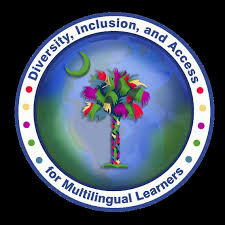Lexington school districts enhance support for Hispanic students with multilingual program
Approximately 8.1% of Lexington’s community is Hispanic or Latino according to the United States Census Bureau.
In Lexington School District One, a total of 3,230 Hispanic or Latino …
This item is available in full to subscribers.
Subscribe to continue reading. Already a subscriber? Sign in
Get 50% of all subscriptions for a limited time. Subscribe today.
Please log in to continueNeed an account?
|
Lexington school districts enhance support for Hispanic students with multilingual program
Approximately 8.1% of Lexington’s community is Hispanic or Latino, according to the United States Census Bureau.
In Lexington School District One, a total of 3,230 Hispanic or Latino students were enrolled in schools, according on the 2023-2024 180-Day Race/Ethnicity Statistics. Spanish is one of the world languages taught in Lexington One, therefore there are Spanish-speaking teachers employed in that district.
In Lexington-Richland District Five, there are 359 Spanish-speaking students as of Sept. 25, 2024. The district also has 40 teachers that speak Spanish.
All school districts offer the Multilingual Learner Program which is under Title III. Under this program, schools offer educational opportunities for multilingual learners as they are developing English language proficiency.
The Multilingual Learner Program emphasizes the advantages of bi/multilingualism of students as assets rather than deficits.
All districts offer learning that is personalized that supports the students and allows them to flourish and grow in the classroom with others.
Students who are a part of the MLP are taught by educators in all schools and provide academic assistance for students in order for them to become successful.
Depending on the students' English language proficiency, students must have an Individualized Language Accommodation Plan (ILAP). The plan addresses the students’ accommodations in their classes to guarantee their success and continual English language improvement.
The ILAP is created with members directly involved with the students' education such as an MLP teacher, parent or guardian, general education teacher, administrator, guidance counselor and the student.
Educators can accommodate how material and concepts are presented to the students. They can alter the environment, however, they cannot change the curriculum presented.
Modifications can similarly benefit ML students by changing, lowering or decreasing the learning expectations placed. Students can have additional time to complete assignments and lessen the number of assignments or test questions.
South Carolina is a member of the WIDA Consortium which researches, designs and implements high-quality systems to support multilingual learners.
ML students are additionally evaluated yearly using the ACCESS assessment. The test scores show whether a student should leave the program or stay and shows the progress of the students.
Other items that may interest you







Comments
No comments on this item Please log in to comment by clicking here